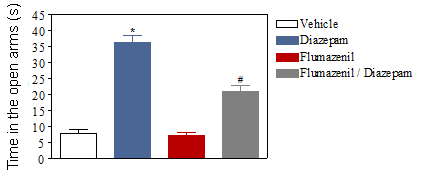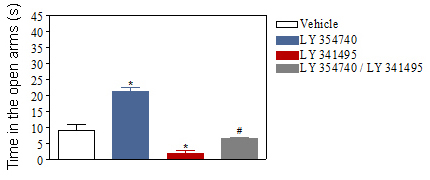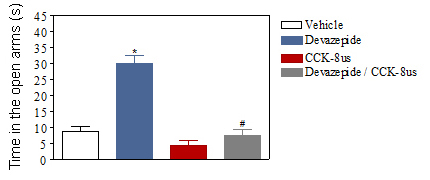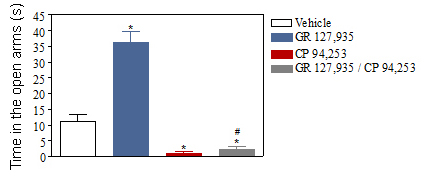Newsletter # 17

Animal models
-

Benzodiazepine receptor
Diazepam (agonist) and Flumazenil (antagonist)
* : p < 0.05; vs Vehicle group
# : p < 0.05; Diazepam group -

mGluR2/3 receptor
LY354740 (agonist) and LY341495 (antagonist)
* : p < 0.05; vs Vehicle group
# : p < 0.05; vs LY354740 group
-

CCK receptor
Devazepide (CCK1 antagonist) and CCK-8us (CCK2 agonist)
* : p < 0.05; vs Vehicle group
# : p < 0.05; vs Devazepide group -

5HT1B receptor
GR127,935 (5HT1B/1D antagonist) and CP94,253 (5HT1B agonist)
* : p < 0.05; vs Vehicle group
# : p < 0.05; vs GR127,935 group
-
We look forward to hearing from you.
Get in touch


 PREVIOUS
PREVIOUS